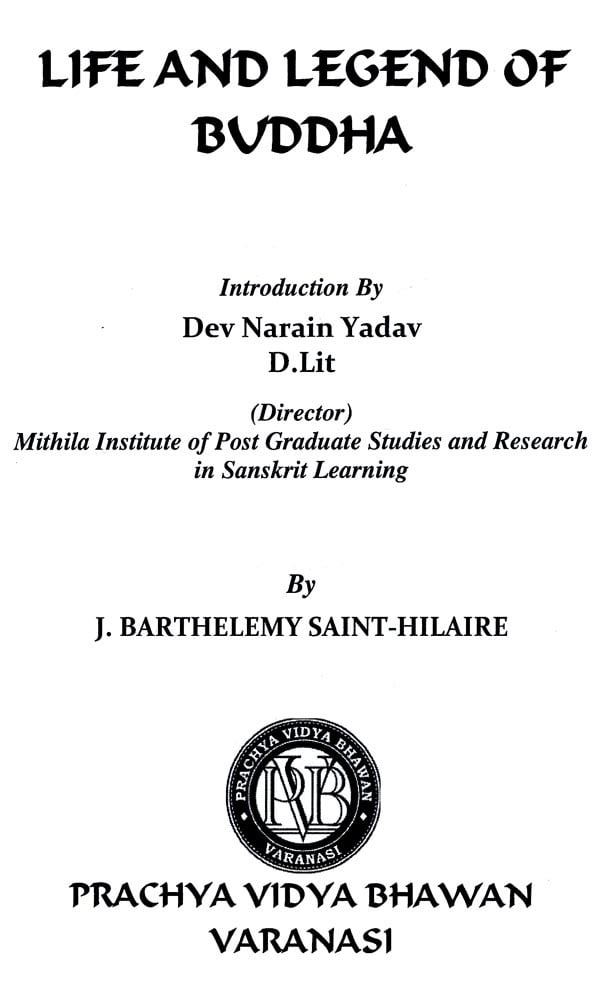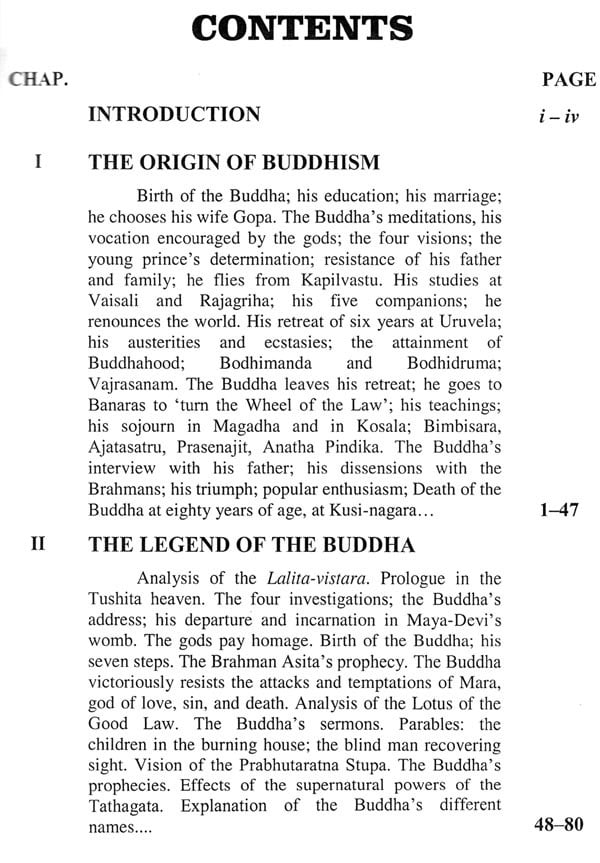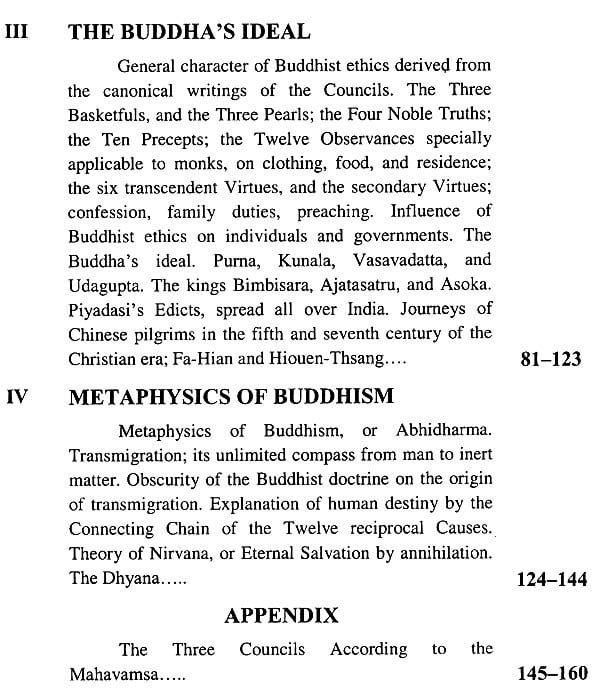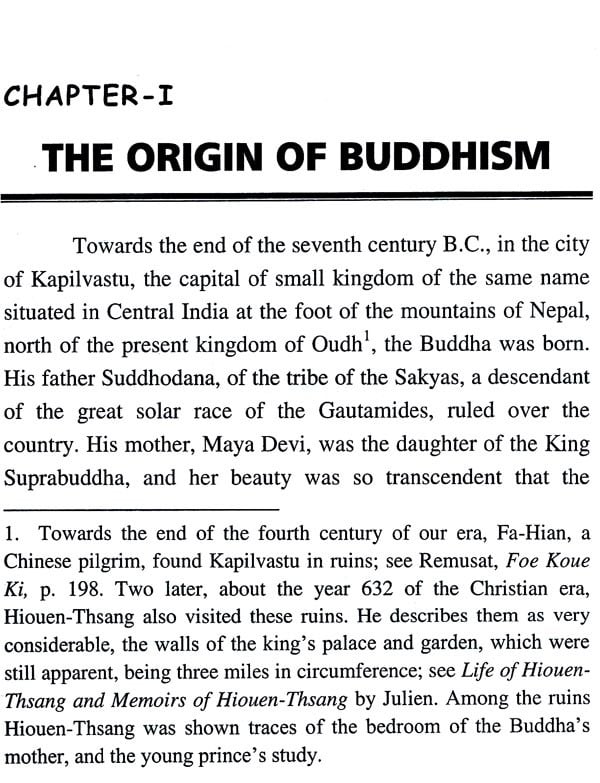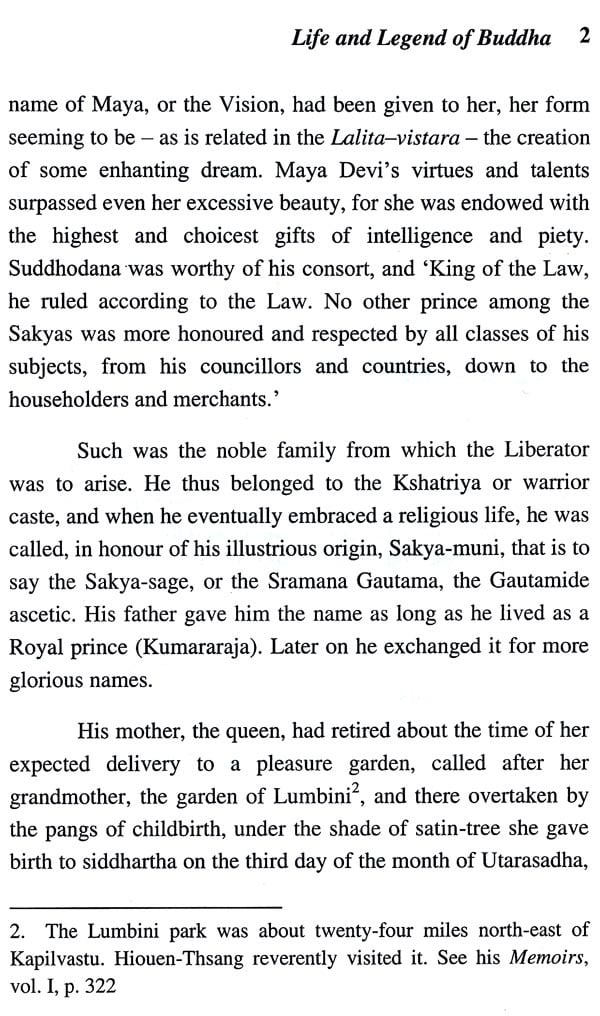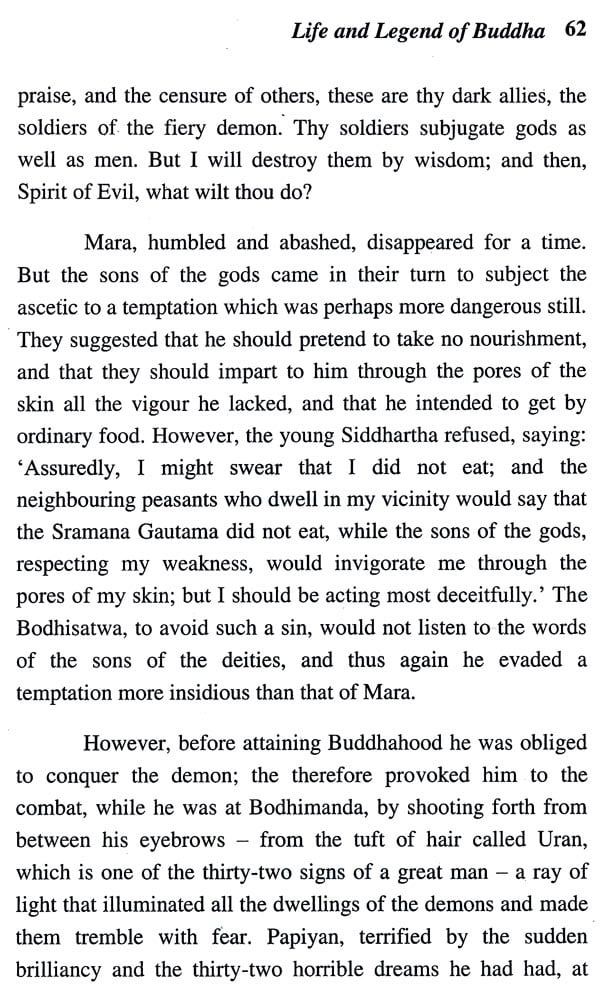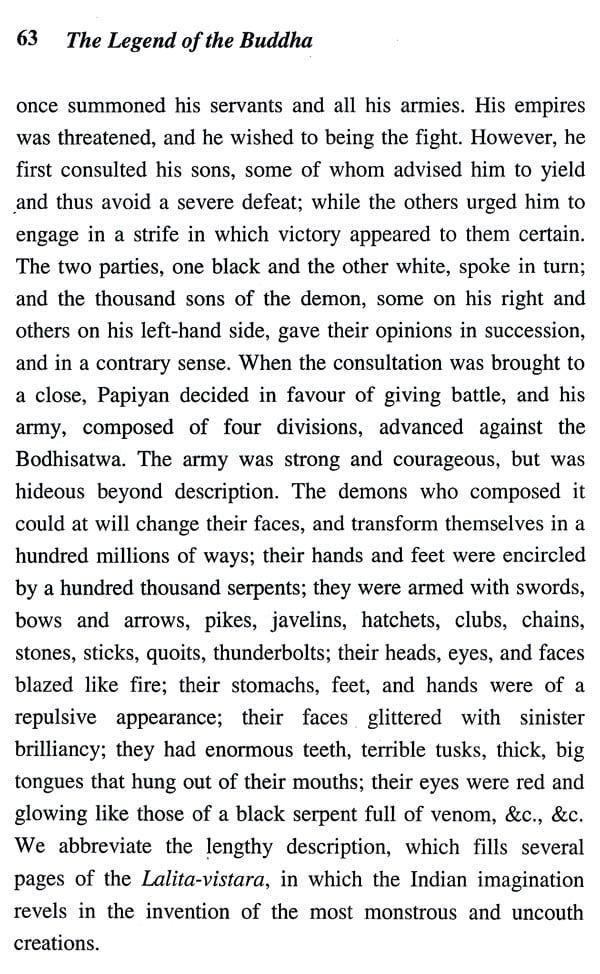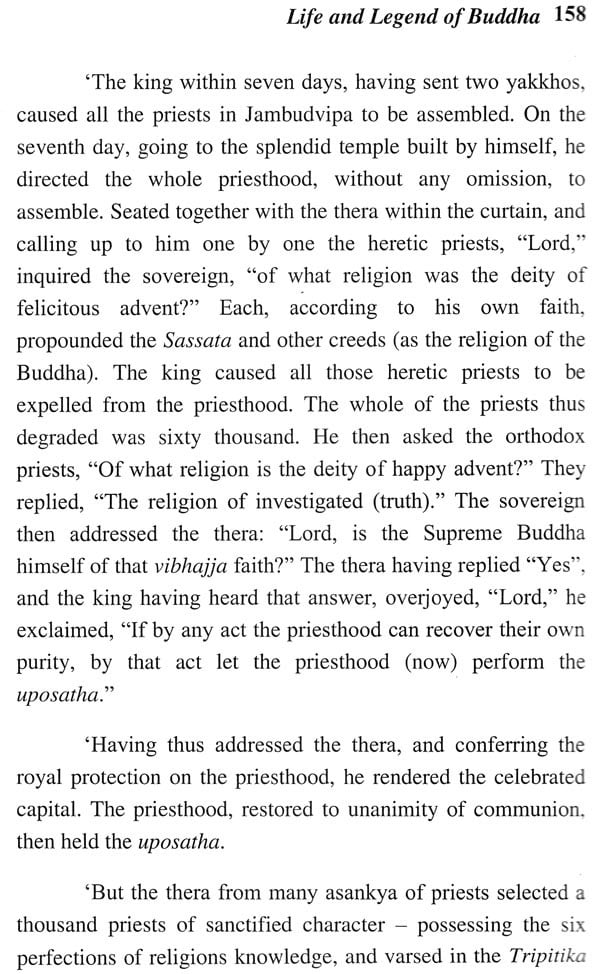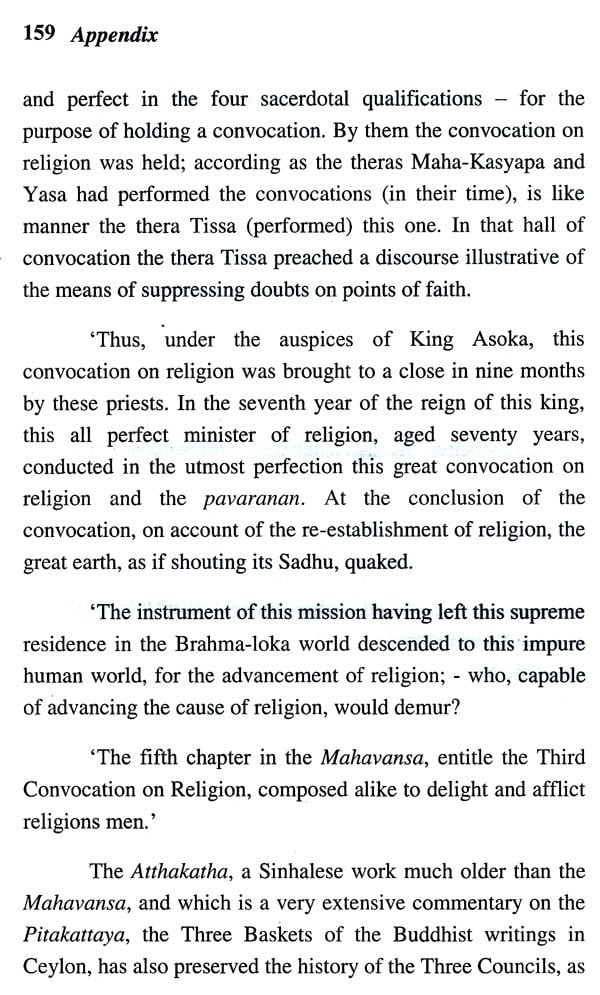About the Book Towards the end of the seventh century B.C., in the city of Kapilvastu, the capital of small kingdom of the same name situated in Central India at the foot of the mountains of Nepal, north of the present kingdom of Oudh, the Buddha was born. His father Suddhodana, of the tribe of the Sakyas, a descendant of the great solar race of the Gautamides, ruled over the country. His mother, Maya Devi, was the daughter of the King Suprabuddha, and her beauty was so transcendent that the name of Maya, or the Vision, had been given to her, her form seeming to be as is related in the Lalita-vistara- the creation of some enhanting dream. Maya Devi's virtues and talents surpassed even her excessive beauty, for she was endowed with the highest and choicest gifts of intelligence and piety. Suddhodana was worthy of his consort, and 'King of the Law, he ruled according to the Law. No other prince among the Sakyas was more honoured and respected by all classes of his subjects, from his councilors and countries, down to the householders and merchants."
Although Sakya-muni devoted himself more to the practical side of religion, it is impossible to doubt that he had also a theory. He had been a pupil of the Brahmans, and the reflective tendency of his own genius led him to seek for the essential basis of his doctrine. He did not, it is true, positively separate metaphysics from ethics, but the latter naturally obliged him to seek for higher principles, and in his teaching he joins to the precepts he gives on the discipline of life, axioms which explain and justify these precepts. Hence, in the very first Council, his disciples made, under the name of Abhidharma, a collection of his metaphysical axioms, one of the Three Baskets (Tripitaka), in which the canonical books were divided.
About the Author Born Aug. 19, 1805, in Paris: studied Sanskrit under Eugene Burnouf: early entered public life: attached to the Ministry of Finance, 1825-38: Editor of the Globe, 1825 30: as a journalist, signed the protest against the July ordinances of Charles X: became famous as a politician and ardent Republican, and lived through several revolutions: held office several times, as colleague of Victor Cousin in the Ministry of Public Instruction: in 1848, as Secretary of the provisional Government: from 1871, took an active part in public affairs in 1880, etc.: yet he was greatest as a scholar, and student of Philosophy: was Professor of Greek and Latin Philosophy at the College de France, 1838-52, Member of the Institute, 1839: in this year, began his study of Sanskrit Philosophy: administrator of the College du France, 1849: accompanied Lesseps on his journey to Egypt, 1855, to explore the Isthmus of Suez. After the death of Eugene Burnouf, Barthelemy took his place as a writer on Indian matters in the Journal des Savants: died Nov. 24, 1895: best known as a Greek scholar: the great achievement of his life was this translation of Aristotle: also did valuable work as an Indianist: among his publications are Des Vedas, 1854: Du Bouddhisme, 1855: Le Bouddha et sa religion, 1866: L'Inde Anglaise, 1887, etc.
Introduction We will begin with an analysis of the two Buddhistic Sutras that have been translated into French: the Lalita-vistara by P. Ed. Foucaux, and the Lotus of the Good Law (Lotus de la bonne Loi) by E. Burnouf. It is very strange form of literature, but the doctrines they set forth are equally strange, and the style agrees with the matter.
**Contents and Sample Pages**
